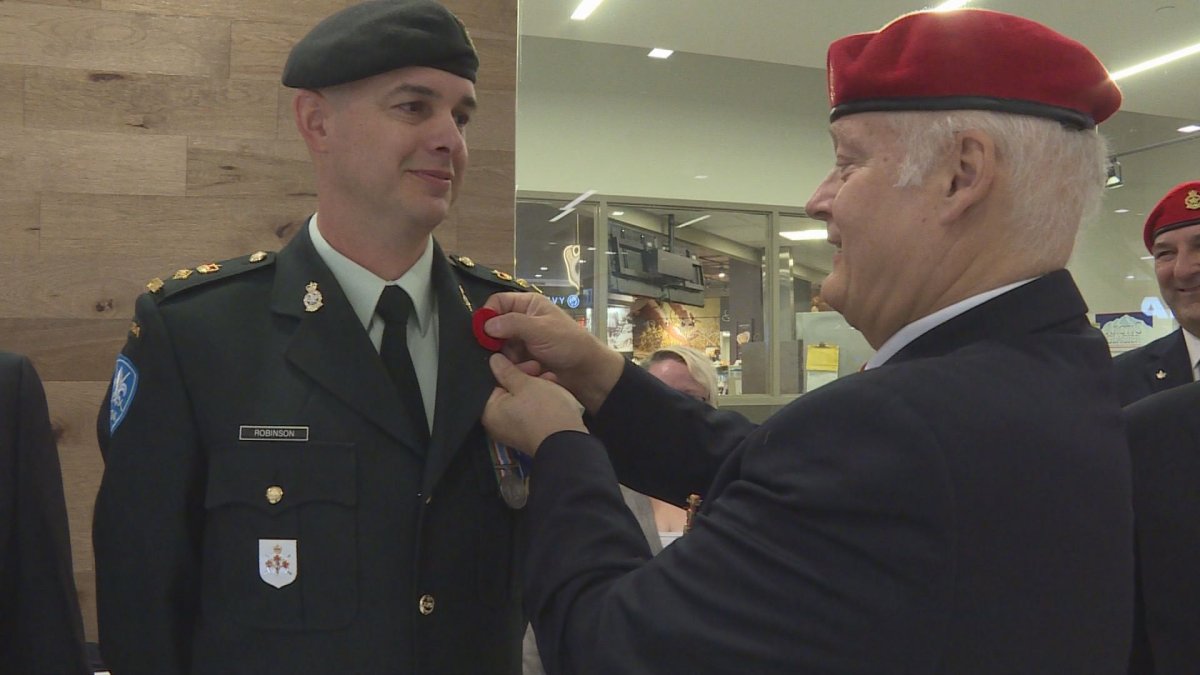The ceremonial poppy pinning is an annual traditional for Branch 14 of the Royal Canadian Legion.

Veterans, both old and young, as well as dignitaries kicked off the drive to officially launch the poppy campaign.
In recent years, the iconic flower has grown in popularity.
READ MORE: #Poppyproud encourages Montreal youth to celebrate Remembrance Day
This year marks a special anniversary for the Montreal regiment and the Armed Forces.
A century ago, nearly 25,000 Canadians and Newfoundlanders were killed in the historic Battle of the Somme.
While the story is remembered in the history books, it’s often forgotten otherwise.
“The perception is pretty dim of people’s memories of the First World War,” said Robinson.
“They think of trenches, rats and mud, but what people fail to understand is, given how difficult it was, what Canadians and Newfoundlanders managed to contribute was far beyond what was expected of them.”
READ MORE: Poppy donation theft at Montreal’s Jewish General Hospital
It also marked the beginning of the First Montreal Regiment, which was the first time in Canadian history that English and French fought together.
“Many people say that was the birth of our country,” said Transport Minister Marc Garneau, who took part in the ceremony.
“Canada was making a major contribution in the First World War and it’s important to remind them.”
While many remember the Second World War and more recent combat missions, this regiment is trying to keep those older stories alive.
“Unfortunately, our school system in Quebec doesn’t teach that,” said Robinson.
“It brushes over the First World War very generally. People understand it’s important and significant, they respect it but I’m not sure they know why.”


Comments